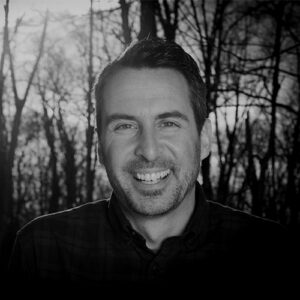
Over the past year, we have all had time for self-reflection and with the pause, the opportunity to press the reset button in certain aspects of our lives.
I have started various projects and made the decision to undergo surgery to repair an old injury to my ankle last summer. For five years, I had put off my physical needs as it would mean stepping away from performing around the world and participating in the job that fulfilled me. No longer on tour and no longer performing, I felt like I was left in limbo. All this change has caused me to think a lot. Following one of my university courses, I began to question my motivation. While talking with my colleagues from the Projet LUMIÈRE Project, I learned that a new initiative was underway: understanding how to maintain our motivation in these uncertain times. I immediately agreed to participate. In sharing with Jean-Paul Richard ( LINK Linkedin ) , I deepened my reflections on my level of motivation by answering questions about how I had met my psychological needs in the past. By discovering the frame of reference of the science of motivation, I learned how to use this theory to create better conditions to adapt to different situations in the future.
As an elite gymnast, I found myself in high pressure situations when I was very young. Because of this, I often have to fight against internalized blockages that don’t need to be there at all. I believe this is the result of years of being in a results-oriented environment. It is still a struggle that I still face today.
Discovering more about the science of motivation has taught me to understand the importance of the three psychological needs. I thought back to my years as an athlete, where I was focused on results, believing this was the only way to succeed. I would keep adding more and more pressure, maintaining a negative circle and feeling like I had no way out. Realizing that we have a psychological need for autonomy helped me understand what I have discovered over the more recent years as a professional acrobat and artist – that we always have a choice! It’s much more rewarding when you think about it… the choices are not always easy to make, nor is it always the clearest path. Personally, exercising this need for autonomy has given me a feeling of lightness and the ability to take the pressure off and breathe again.
When I realized the importance of the psychological need for affiliation or connection, it made me think about how I had made my transition from athlete to artist. I re-oriented my goals, which were now no longer validated by winning medals. I had to do a lot of work to redefine my goals and redefine my identity. I knew that I had to find meaning in what I wanted, and I quickly realized that I had to give more value and quality to my goals and not to the outcomes the goals could bring me. With the science of motivation as a reference, I now have a better understanding of how I connected my own personal values to my new goals as an artist with Cirque du Soleil. Wanting to have a positive impact on the audience brought a lot of meaning to my work. Feeling that I could help at least one person during a show made my work very rewarding. It was about the connection, not the perfection. These objectives pushed me to find more value in my actions – in my emotions. If I saw someone in the audience crying when they were overwhelmed by emotion I knew that I had touched their heart. I could feel it. Now I understand that with new goals, I was able to satisfy my psychological needs. It gave me a lot of energy and I could maintain it more easily, night after night.
Following my reflections on my current level of motivation, I believe that we are in a period where we can choose to transfer, develop or discover new skills. I am focusing on improving my patience. When I was an artist, I had to be patient in my physical and artistic progression. Right now, I’m transferring my competencies by learning communication skills to collaborate more efficiently. Over the past six months, I enrolled and completed a certificate program in Public Relations and have begun to work both with a PR agency and as a freelancer. As I begin this new career, my goal is to be present and patient in order to communicate well with my colleagues and clients. It is important for me to be patient with myself to evolve my communication skills in order to foster respect and collaboration in my new environment. In the past, I’ve often become easily overwhelmed with change due to the feeling of inadequacy.
To develop my patience is to take the time to ask myself the important questions. What is important to me right now? What skills or competencies do I want to develop to equip myself to move forward? 2020 has forced us to ask ourselves these questions and to take the time to learn who we really are and where we really want to go. We all want to move forward. Whether I was an elite athlete, a circus performer, or an emerging public relations professional, I have always reminded myself to be present. Live in the moment. But, it is easy to feel stuck by living in the moment and not looking forward simultaneously. Perhaps this is the right time to develop our competence to be open to change.
Maybe it is time to develop our ability to look at things from a new perspective and to develop our ability to understand those who are in our communities. We need to meet our needs, support each other, love who we are and who we are going to become.
Public Relations Consultant
Cirque du Soleil Acrobat
Founder, TANGIBLE performance
http://selfdeterminationtheory.org
Andy Buchanan
Stacy Clark
How Do We Maintain Our Motivation?
I am Healthy, I am Happy, I am Loved.


Freestyle ski coach for many years, Jean-Paul has accumulated a wealth of experience affording him a global vision of human performance. He lived and worked in Sweden, five years, where he participated in developing programs of excellence for coaches and athletes. He then led the Swedish National Mogul Ski Team at the 2010 Olympic Games in Vancouver. Upon returning to Canada, Jean-Paul coached the Canadian Women’s Freestyle Ski Team. He implemented a coaching approach designed to create wellness and performance environments, enabling the Dufour-Lapointe sisters to win gold and silver medals at the Sochi 2014 Olympic Winter Games in Russia. Following his Olympic successes, Jean-Paul turned to performance management, notably as Manager of Team Services at the Canadian Olympic Committee and participated in the success of all sports in Canada. He also worked at Cirque du Soleil, where he held various management positions and worked as an executive coach and facilitator, developing skills and coaching managers in leadership and change management. Jean-Paul now shares his expertise, experience and passion by teaching motivational skills and the principles of committed leadership. TANGIBLE performance offers real impact on well-being and performance while promoting human and organizational development.
Read Full Profile© 2021 TheatreArtLife. All rights reserved.

Thank you so much for reading, but you have now reached your free article limit for this month.
Our contributors are currently writing more articles for you to enjoy.
To keep reading, all you have to do is become a subscriber and then you can read unlimited articles anytime.
Your investment will help us continue to ignite connections across the globe in live entertainment and build this community for industry professionals.